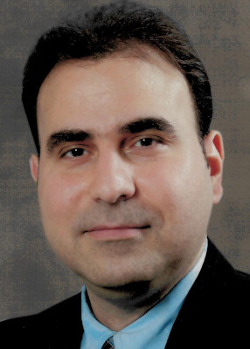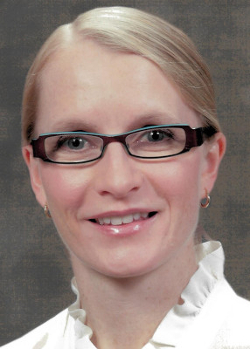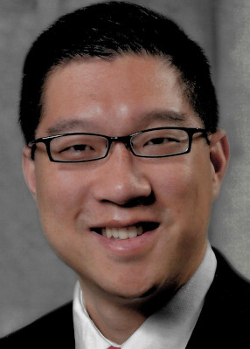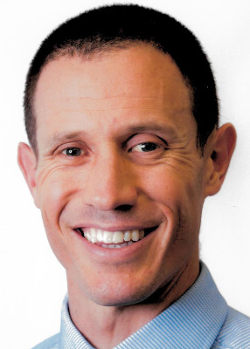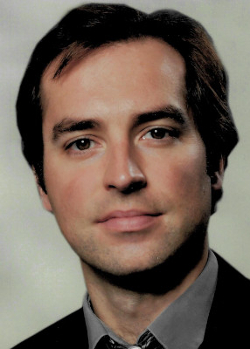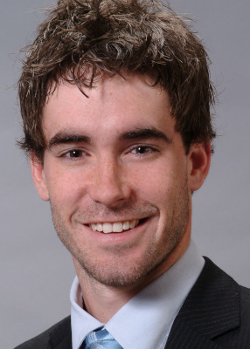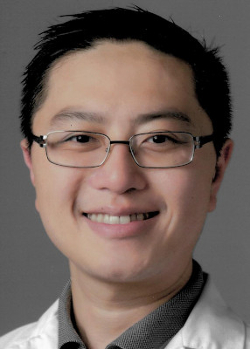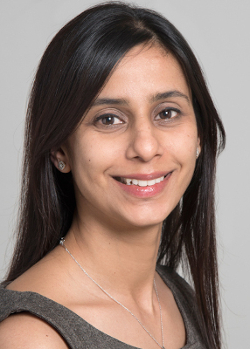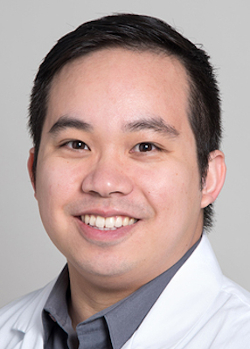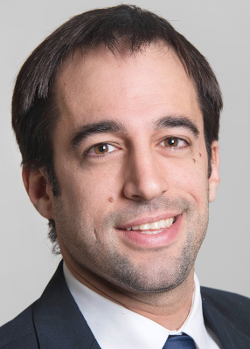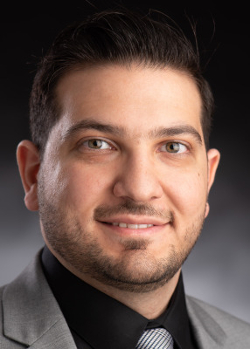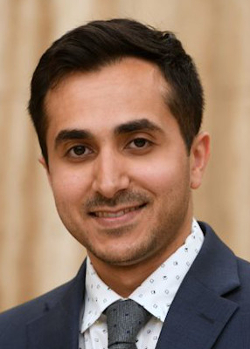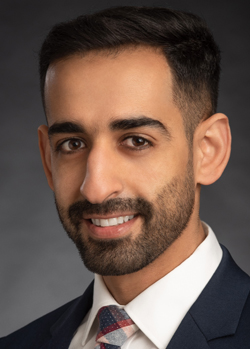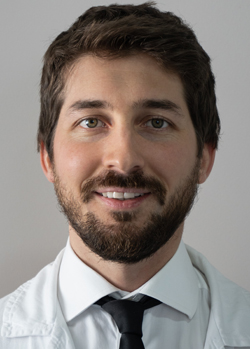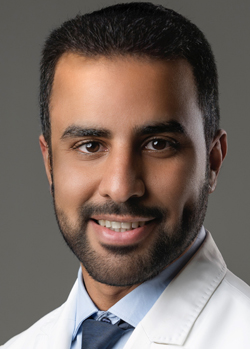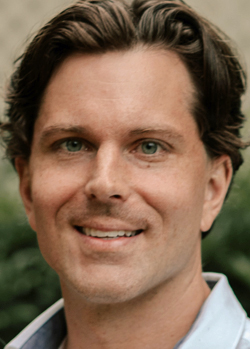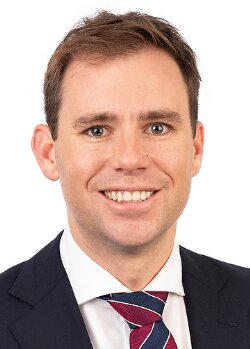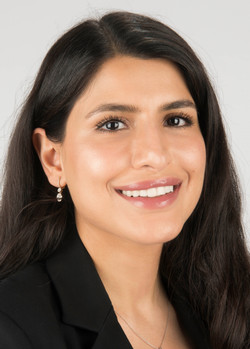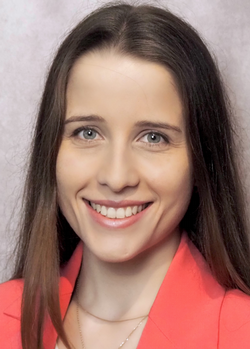Head and Neck Fellowship
Advanced Training in Head and Neck Oncology & Reconstructive Microvascular Surgery
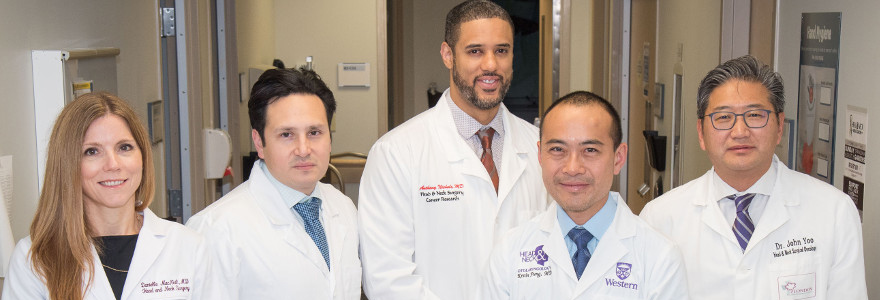
Fellowship Description
Objectives
The objective of the Head and Neck Oncology Fellowship at Western University is to develop leaders in the field of Head and Neck Oncology and Reconstructive Surgery. At the completion of the fellowship, the individual will have mastered contemporary concepts in oncologic surgery and reconstructive surgery of the head and neck surgery. In addition, academic development through independent clinical research, collaborative translational research, and medical education will be provided. At the end of the fellowship, the individual will meet the criteria to function as a Cancer Care Ontario Surgical Oncologist in Head and Neck Surgery.
Requirements
Fellow of the Royal College of Physicians and Surgeons of Canada in Otolaryngology- Head and Neck Surgery, Diplomate of the American Board of Otolaryngology (or equivalent) are preferred. However, this fellowship is not restricted to graduates of North American Otolaryngology residencies and foreign-trained candidates are encouraged to apply. For candidates trained outside of Canada and the United States, there must be clear documentation of qualifications and prior experience. Letters of reference and the applicants’ personal statement outlining career goals, are required. Documentation of post fellowship employment, with an emphasis on academic institutions, will be viewed favourably during the selection process.
Total Number of Positions Available per Year
One full year is the preferred time frame of the fellowship but depending on prior experience the fellowship can be tailored to suit the candidate. Options would include 1-2 years of clinical fellowship with an additional research component. In the event that a fellow is posted in their research component, a clinical fellow will also be selected. Every assurance will be made so that there will not be overlapping clinical responsibilities at a point in time.
Medical Center
Schulich School of Medical School & Dentistry, Western University is a large academic centre located in the city of London, Ontario. The Head and Neck Fellowship is sited within London Health Sciences Centre (LHSC) and the Verspeeten Family Cancer Centre. LHSC is a comprehensive tertiary referral centre serving approximately 2 million people.
Fellowship Program Outline
Trainees in this fellowship program have the unique opportunity to learn and work with 64 academic Head and Neck Surgical Oncologists who are all fellowship-training in microvascular surgery from different North American Centres. This provides a rich, vibrant, and versatile clinical experience both in oncologic and reconstructive surgery. Microvascular Reconstructive Surgery is a particular strength of this fellowship and is the domain of the fellow. The fellow will participate in the design and implementation of a wide array of free tissue transfers for various defects. At the completion of the fellowship the fellow will have performed at least 100 free flaps. The fellow will also have the opportunity to participate in the full array of procedures for benign and malignant disorders of the head and neck. The Head and Neck Program also includes Transoral Robotic Surgery, skull base surgery, endoscopic laryngeal laser surgery, thyroid and parathyroid surgery, skin cancer, laryngotracheal reconstruction, and facial nerve reanimation. Routine ablative procedures including thyroidectomy, parotidectomy, and neck dissection is considered the domain of the Otolaryngology resident. The fellow will be expected to have a supervisory role when appropriate. An interdisciplinary approach to patient care is strongly emphasized. All cancer patients are assessed at a multidisciplinary tumour board and a consensus opinion is derived for the management of each patient. The fellow will have the opportunity to rotate through both radiation and medical oncology in order to gain a better understanding of the various disciplines.
Research
It is the expectation that the individual will be active in clinical research throughout the duration of the fellowship. With a robust translational research program in Head and Neck Tumour Biology and Viral Oncology (co-directors Anthony Nichols, MD and Joe Mymryk, PhD), the fellow will have the opportunity to collaborate with graduate students and basic scientists, and participate in laboratory and translational research. There are ample opportunities to participate with the translational research program in Head and Neck Tumour Biology and Viral Oncology (Anthony Nichols, MD), head and neck survivorship, epidemiology and systematic review studies (Danielle MacNeil, MD MSc), quality of life and facial nerve recovery studies (John Yoo, MD and Adrian Mendez, MD PhD), surgical simulation (Kevin Fung, MD) and education research studies (Timothy Phillips, MD). Criteria for success will be the completion of a publishable work and presentation(s) at a national or international meeting. A minimum of 3 publications are expected over the course of the fellowship. Clinical research opportunities are widely also available both within the Department or in collaboration with Radiation Oncology, Medical Oncology, Nuclear Medicine, and Endocrinology. The Department of OTO-HNS provides financial and administrative support for research endeavors taken on by the fellow.
Educational Seminars
The fellow will also be required to participate in a grand rounds presentation on head and neck reconstruction and resident teaching on head and neck oncology.
Specific Responsibilities of the Fellow
- Assessment of new patients at the Mutlidisciplinary Tumour (MDT) Board
- Coordination and presentation of new patients to the MDT
- Outpatient clinics (approximately 1 day per week)
- Participation in all free tissue transfer operations and all major ablations
- Actively participate in the education of residents and medical students in the operating room, on the wards, and in the clinic.
- Attendance at departmental academic meetings
- Coordinator of Head and Neck Journal Club
- Present Head and Neck Oncology Rounds
- Maintain active research projects
- On-call responsibilities for all free flap patients and limited for general otolaryngology
Postgraduate Education Document
Fellowship in Head and Neck Oncology & Reconstructive Surgery, Department of Otolaryngology- Head and Neck Surgery, Schulich School of Medicine & Dentistry, Western University.
1.0 Purpose
The purpose of the Head and Neck Oncology & Reconstructive Surgery Clinical
Fellowship at the Schulich School of Medicine & Dentistry and the London Regional
Cancer Program is to provide the opportunity for advanced training for physicians who have completed their specialty training. The Fellowship will center on clinical research and surgical training in advanced ablation and free tissue reconstruction of the head and neck.
2.0 Eligibility
- Clinical fellowships in Head and Neck Oncology & Reconstructive Surgery are open to persons who have completed specialty training in Surgery.
- Fellowship of the Royal College of Physicians and Surgeons of Canada (RCPSC) is required. Persons who are eligible to take the examination in their specialty may enter the program. Equivalent foreign training is acceptable.
- Candidates must have a license to practice medicine in Ontario (Educational Licenses are acceptable), a qualification that can be met with an educational license.
3.0 Organization
The Head and Neck Oncology & Reconstructive Surgery Division within the Department of Otolaryngology evaluates applications and submits a candidate for approval to the Departmental Postgraduate Education Committee. The PGE committee along with the administrative staff helps support the applicants and their supervisor(s). All fellowships are under the overall supervision of the Office of the Associate Dean of Post Graduate Education, Schulich School of Medicine & Dentistry, Western University.
4.0 General Principles
The CanMEDS guidelines of the RCPSC provide the framework for Fellows to develop their program of study. Individual programs must have approval of the Fellows supervisor and the Postgraduate Education Committee of Department of Oto-HNS. Fellows are encouraged to individualize their programs to meet their anticipated career needs. In developing their program of study each fellowship candidate will be asked to show how their study will enhance their skills in the essential roles of specialist physicians according to the CanMEDS guidelines. These are outlined in a general format below.
4.1 Medical Expert
- Fellows are expected to develop space further their clinical expertise in Head and Neck Oncology & Reconstructive Surgery. At the end of the fellowship they should be able to function as a resource person and someone with special skills and knowledge in particular area.
- In collaboration with their clinical supervisor, the fellow must develop a protocol for clinical research.
- As an alternative or in addition to the above develop a laboratory based research project and demonstrate the ability to complete such a study.
- Fellows will be required to develop effective leadership skills in a variety of ways including participation in multi-disciplinary conferences, generation of long-term patient management policies, working with community physicians and health care personnel.
- Clinical training of Fellows may occur in the operating room, clinic, on inpatient services or in community settings in keeping with the development of expertise and the needs of each Fellow’s program.
- Each Fellow is required to have a longitudinal clinic providing the opportunity to learn the skills needed for the management of patients over a prolonged period of time.
- Fellows will need to demonstrate insight into their personal limits of expertise by ongoing self- assessment.
4.2 Communicator
- Fellows are expected to develop further their communication skills during their fellowship training. This may occur in multi-disciplinary clinics and by sharing in the management of patients with other physicians who may be either specialists or family physicians.
- Fellows will demonstrate an appreciation of the role of nursing and other support services in the delivery of cancer care at all stages of disease progression. Throughout their fellowship will be required to exhibit their skills in working as part of a multidisciplinary team.
- Communication with patients and their families is further developed in radiation oncology clinics in which the trainee has the opportunity to manage patients.
- Fellows are expected to be involved in teaching medical students, residents, and other health care professionals either in the clinic or by giving seminars, talks or leading discussion groups.
- Trainees will be evaluated on their ability to establish therapeutic relationships with their patients including dealing with societal, cultural and end of life issues in a humane and understandable manner.
4.3 Collaborator
- Specialist physicians and especially those with subspecialty training must work as part of a multi-disciplinary team to be effective. Fellows are expected to develop their skills of working in a multi-disciplinary setting being often but not always in a leadership role in a multi- disciplinary team.
- Demonstrate proficiency in developing investigation, treatment and management plans and protocols for patients in the multi-disciplinary setting.
- Fellows are expected to participate in teaching of nurses and other health care professionals, to assist in development of patient care directives and guidelines with nurses and other health care workers.
- Fellows are expected to develop the skills of ensuring the presence of team-based patient care.
4.4 Manager
- Fellows are expected to learn to access and apply a broad base of information to the care of patients in hospital, in ambulatory care and other health care settings.
- Demonstrate an understanding of population-based approaches to health care services and their implications for medical practice.
- Develop an understanding of the planning and organization needed for effective and multi- disciplinary research whether laboratory based, population based or clinical research.
4.5 Health Advocate
- Fellows are required to recognize and respond to those issues, settings, circumstances, or situations in which advocacy on behalf of patients, the organization within which they work, or society as a whole is appropriate.
- Demonstrate knowledge of those determinants of health that affect a patient or a population of patients so as to be able to effectively contribute to improving individual and societal health.
- Demonstrate an understanding of the ethical issues involved in health care delivery, clinical trials and clinical research.
4.6 Scholar
- By being responsible for the essential planning of their fellowship program Fellows will develop and refine the skills necessary for a personal continuing education strategy.
- Demonstrate skills in undergraduate teaching and teaching of other health care professionals.
- To further scholarly skills all Fellows will be encouraged to have a clinical or laboratory/translational project presented at a major meeting or published in a peer review journal.
- Participate in journal clubs, seminars and other learning activities of the Department of Otolaryngology and Oncology. This will include presentations at multi-disciplinary rounds.
- To develop an inquiring approach and interest to their profession that can contribute to development of new knowledge.
4.7 Professional
- Demonstrate a commitment to the delivery of the highest quality care with integrity and compassion.
- Demonstrate at all times appropriate personal and interpersonal professional behaviour.
- To be knowledgeable of the ethical issues of medical practice and the obligations of physicians to uphold them.
5.0 Evaluation
Evaluations of all Fellows will be conducted at 3-month intervals throughout their Fellowship, in the form of ITERs similar to those used in residency training with a FITER on completion of the Fellowship. The Director of Head and Neck Oncology & Reconstructive Surgery of will conduct the evaluation process involving the supervisor(s), other clinicians and scientists with whom the Fellow has worked. Other personnel may be included as appropriate, such as, administration, nursing staff and technical staff. All evaluations will be reviewed with the Fellow who will sign off on them.
Fellows: Past and Present
List
|
Dr. Julian White |
Dr. Roger Moukarbel |
|
||
|
Dr. Christopher Szeto |
Dr. Samuel Dowthwaite |
Dr. Mathieu Belzile |
||
|
Dr. Douglas Angel |
Dr. Hubert Low |
Dr. Jessica Prasad |
||
|
Dr. David Yeh |
Dr. Axel Sahovaler |
Dr. Eun Jae Chung |
||
|
Dr. Moaid Rammal |
Dr. Faisal Alzahrani |
Dr. Naif Fnais |
||
|
Dr. Francisco Laxague |
Dr. Mohammed Alshahrani |
Dr. Jacob Jervis-Bardy
|
||
|
Dr. Campbell Schmidt |
Dr. Sama Alohali
|
Dr. Catherine Beaumont
|
Application Process
Interested applicants should send their curriculum vitae as well as three recent letters of reference from surgical mentors directly to Dr. Danielle MacNeil at Danielle.MacNeil@lhsc.on.ca
The fellowship begins July 1st and concludes June 30th the following year. The next available fellowship is for July 1, 2026 to June 30 2027. Fellowship applications are due by November one and half years before the target start date (November 2025 for the 2027 position). Selected applicants will be invited for an interview by video conference in early 2025.
Fellowship Director
Danielle MacNeil MD,FRCSC
Danielle.MacNeil@lhsc.on.ca
Associate Professor, Department of Otolaryngology-Head and Neck Surgery
Head and Neck Fellowship Director
Director-Head and Neck Oncology and Reconstructive Surgery
Schulich School of Medicine & Dentistry Western University
London Health Sciences Centre 800 Commissioners Road. Suite B3-429
London, Ontario N6A-4G5
CANADA
Office Contact
Manager, Administration and Finance
Erin Fischer
London Health Sciences Centre-Victoria Hospital
800 Commissioners Road East, London ON N6A 4V2
Ph: 519.685.8500
erin.fischer@lhsc.on.ca
Mailing Address
Department of Otolaryngology-Head and Neck Surgery
DeptOfOtolaryngology@lhsc.on.ca
Schulich School of Medicine & Dentistry
The University of Western Ontario
c/o London Health Sciences Centre – Victoria Hospital
800 Commissioners Road East
London, Ontario · N6A 5W9 · Canada
Telephone: (519) 685-8500 ext, 55415
Fax: (519) 685-8468


